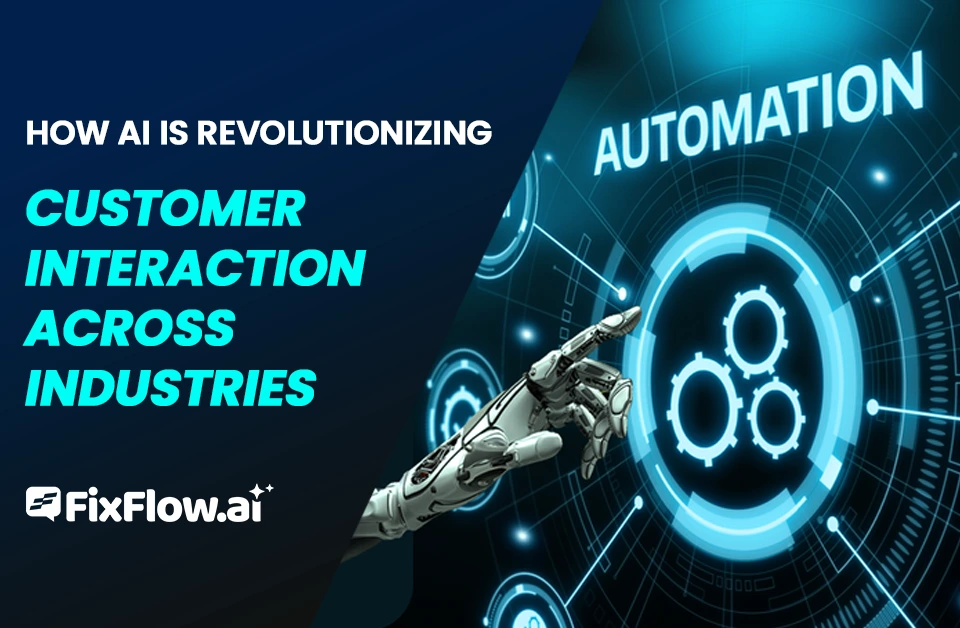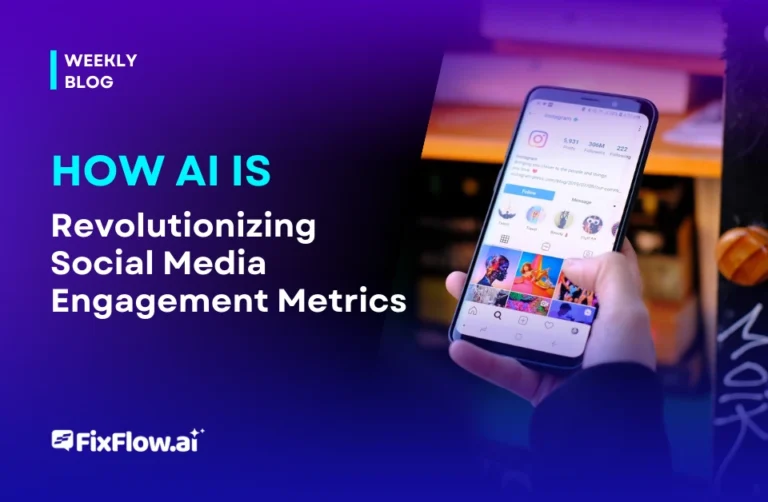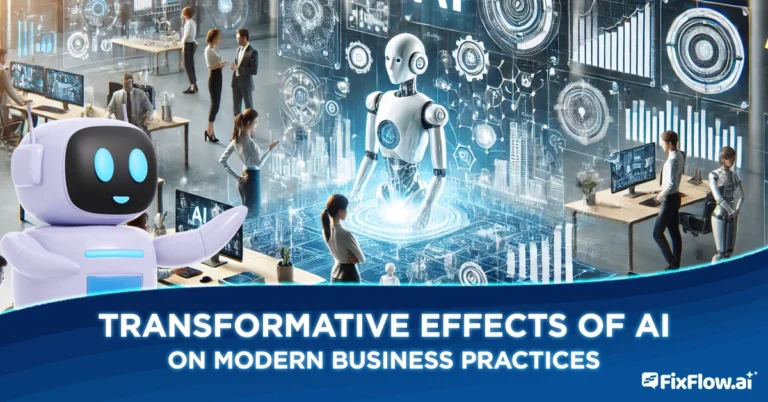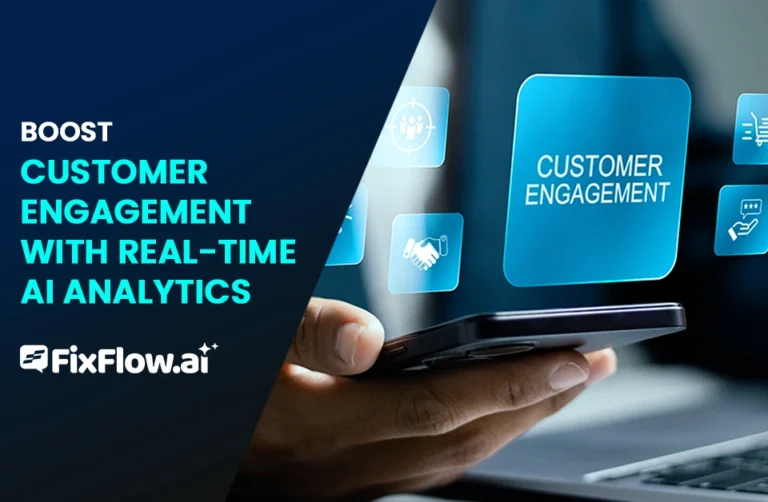How AI Is Revolutionizing Customer Interaction Across Industries
AI is transforming how you interact with brands across various industries. In retail, AI offers tailored shopping experiences with personalized recommendations and virtual stylists. In banking, it provides 24/7 customer service and proactive financial advice while boosting fraud protection. Healthcare uses AI for instant patient support and precise, personalized care. The hospitality sector offers AI concierges and instant chat responses, making trips more enjoyable. Future trends indicate even smarter AI tools, promising consistent and personalized customer interactions. Discover the depth of these innovations and the way they’re shaping your interactions with businesses.
AI in Retail
In the retail industry, AI is transforming the way you shop by delivering personalized recommendations and enhancing customer service through virtual assistants. Imagine walking into your favorite store, whether online or in person, and having a virtual stylist at your fingertips. AI in retail makes this a reality by analyzing your past purchases, browsing history, and even your social media likes to suggest products tailored just for you. It’s like having a personal shopper who’s always on call, knowing your preferences better than any human could.
With AI, personalized shopping recommendations aren’t just about what you might like—they’re about predicting what you’ll absolutely love. As you browse, AI algorithms work behind the scenes to make sure you’re seeing items that match your style, fit, and even your mood. This level of personalization not only makes shopping more enjoyable but also saves you time by cutting through the noise of irrelevant products.
Virtual stylists, powered by AI, go a step further by offering real-time fashion advice and outfit suggestions, turning your shopping experience into a seamless journey. These AI advancements in retail are reshaping how you interact with brands, making each shopping trip uniquely yours.
Banking and Finance
Just as AI is revolutionizing retail with personalized experiences, it’s reshaping banking and finance by offering 24/7 virtual assistants and smart fraud detection. Imagine having your banker available any time of day to help manage your finances. That’s the reality with automated customer service. AI-powered virtual assistants can handle everything from balance inquiries to transaction histories and even guide you through complex financial decisions. They’re always on, ensuring you get the support you need without the wait.
Predictive customer support is another game-changer. It anticipates your needs before you even think to ask. By analyzing your past transactions and behavior patterns, AI can forecast potential issues or suggest tailored financial products that suit your lifestyle. This proactive approach not only enhances customer satisfaction but also greatly reduces the likelihood of financial mishaps.
Moreover, advanced AI systems play a vital role in fraud detection. They continuously monitor transactions for unusual activity, alerting you and your bank in real-time to prevent potential fraud. With AI’s integration in banking and finance, you’re not just a customer—you’re a valued partner in a smarter, more secure financial ecosystem.
Healthcare Innovations
When it comes to healthcare, AI is transforming patient interactions by providing tools like symptom checkers and streamlined appointment scheduling. Imagine having a virtual customer assistant at your fingertips, ready to guide you through a health query or help book your next doctor’s appointment without the hassle of long phone calls. These AI-driven tools are part of the healthcare innovations revolutionizing how you engage with medical services.
With AI, you’re no longer just a number in a system. It’s all about creating a personalized user experience that caters specifically to your health needs. Whether you’re using a symptom checker to assess your condition or receiving reminders for medication, AI helps tailor healthcare to fit your lifestyle. This personalized approach guarantees that you get the support you need when you need it.
Virtual customer assistants can also assist in managing patient follow-ups and provide instant answers to frequently asked questions, enhancing your overall experience. By leveraging AI, healthcare providers can offer faster, more accurate responses, reducing wait times and improving satisfaction. These healthcare innovations are not just about convenience; they’re about creating a more responsive and effective healthcare system for you.
AI in Hospitality
While AI transforms healthcare interactions, it’s also redefining how you experience hospitality with features like AI concierge services and instant rebooking. Imagine arriving at a hotel where you’re greeted not by a person. Still, an AI-powered assistant that knows your preferences, suggests local attractions, and even helps you rebook a missed tour in seconds. This shift in customer interaction is enhancing the hospitality industry by making your stay smoother and more personalized.
In hospitality, AI doesn’t just automate tasks; it anticipates your needs. AI systems analyze data from previous visits, tailoring recommendations to fit your unique tastes. Whether it’s suggesting a restaurant or adjusting room temperature, AI prioritizes your comfort. The hospitality sector is leveraging AI to deliver real-time solutions, like dynamic pricing, which adjusts rates based on demand, ensuring you always receive the best deal.
Furthermore, AI chatbots are available 24/7, handling inquiries and resolving issues instantly, reducing wait times and enhancing satisfaction. By integrating AI, the hospitality industry is revolutionizing customer interaction, offering not just a service but a seamless, tailored experience that caters to your individual needs.
Future Trends
In the domain of future trends, AI is poised to further revolutionize customer interactions by seamlessly integrating into everyday experiences, guaranteeing that it will adapt to evolving consumer needs. You’re likely to see AI-driven communication tools becoming even smarter, enabling businesses to provide more personalized, real-time customer support across multiple channels. Imagine a world where industry-specific AI adoption tailors interactions based on unique sector requirements, whether you’re in retail, healthcare, or finance. This specificity will enhance customer satisfaction and improve service efficiency, making your experiences smoother and more intuitive.
You’ll also notice the rise of omnichannel AI solutions, which promise consistent and cohesive interactions whether you’re engaging online, via mobile, or in-store. These solutions will bridge gaps between different platforms, offering a unified experience that feels natural and effortless. Picture an AI system that remembers your preferences and past interactions, providing continuity regardless of how you choose to communicate.
As industries continue to harness AI’s potential, you’ll experience a future where customer service isn’t just reactive but anticipatory, predicting your needs before you even express them. This trend is set to redefine how businesses connect with you, transforming interactions into seamless, personalized experiences.
Frequently Asked Questions
How Does AI Ensure Data Privacy in Customer Interactions?
AI safeguards data privacy in customer interactions by implementing encryption, anonymizing data, and following strict access controls. You’ll notice AI systems often use advanced encryption to protect data in transit and at rest. By anonymizing personal information, AI minimizes the exposure of your sensitive data. Also, robust access controls guarantee that only authorized personnel can access your information. Regular audits and compliance with data protection regulations keep your interactions secure and private.
What Are the Ethical Considerations When Using AI for Customer Service?
When you’re using AI for customer service, ethical considerations are essential. You need to make sure that customer data is handled with confidentiality and transparency. It’s important to avoid over-automation, which can strip away the human touch that customers often value. Also, ensure your AI systems are trained for cultural nuances and tone to prevent misunderstandings. Balancing efficiency with empathy is key to maintaining trust and satisfaction.
How Can Businesses Balance AI Automation With the Need for Human Touch?
You’ve got to find the sweet spot between AI efficiency and human empathy. Start by using AI for routine tasks, freeing up your team to handle complex or sensitive issues that need a personal touch. Implement AI tools that can escalate cases to human agents when necessary. Train your staff to work alongside AI, ensuring they’re ready to step in and add that critical human element when needed.
What Training Is Required for AI to Understand Cultural Nuances in Communication?
To train AI to understand cultural nuances, you’ll need to focus on diverse data sets reflecting various cultural contexts and languages. Including cultural experts in the training process is vital to guarantee that AI understands subtleties and avoids miscommunication. Regular updates and continuous learning from real-world interactions are necessary. By doing so, you can create AI systems that respect and adapt to cultural differences, enhancing user experience globally.
How Do Companies Measure the Success of AI-Driven Customer Interactions?
You measure the success of AI-driven customer interactions by looking at metrics like customer satisfaction scores, response times, and resolution rates. Track how AI impacts engagement levels or conversion rates. Pay attention to feedback and reviews that mention AI interactions. Compare cost savings from AI deployment against traditional methods. Ultimately, you want to see if AI helps meet or exceed your customer service objectives and enhances the overall customer experience.







